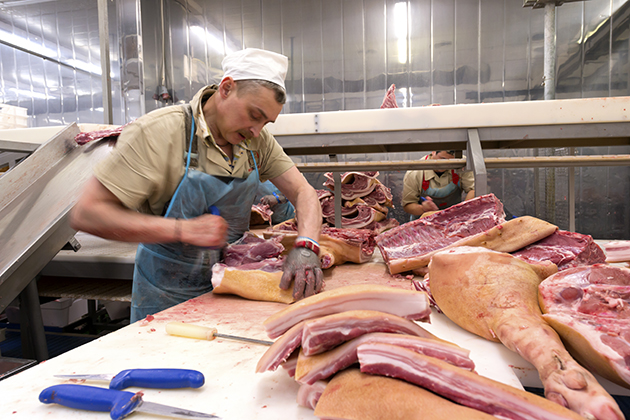China’s New Rules in Dietary Change to Stop Global Warming

Do you realize that China now consumes 28% of the world’s meat, including half of its pork. According to a report from The Guardian by Oliver Milman, the emergence of China as a global economic power has radically altered the diets of the affluent populace.
The average Chinese person now eats 63kg of meat a year, with a further 30kg of meat per person expected to be added by 2030 if nothing is done to change this patter. The new guidelines would reduce this to 14kg to 27kg a year.
Globally, 14.5% of planet-warming emissions emanate from the keeping and eating of cows, chickens, pigs and other animals – more than the emissions from the entire transport sector. Livestock emit methane, a highly potent greenhouse gas, while land clearing and fertilizers release vast amounts of carbon.
A new report by WildAid, predicted that the increase in China’s meat consumption would add an extra 233m tonnes of greenhouse gases to the atmosphere each year, which will strain the country’s water supply, already blighted by polluted rivers and groundwater.
DIETARY CHANGE
Dietary change is important if global warming is to not exceed the 2C limit imposed at the climate accord in Paris last year. The Chinese government has outlined a plan to reduce its citizens’ meat consumption by 50%, in a move that climate campaigners hope will provide major heft in the effort to avoid global warming.
New dietary guidelines drawn up by China’s health ministry recommend that the nation’s 1.3 billion population should consume between 40g to 75g of meat per person each day. The measures, released once every 10 years, are designed to improve public health, but could also provide a major reduction to greenhouse gas emissions.
HOLLYWOOD ALLIES
The Chinese Communist party also found unusual allies among Hollywood celebrities, with actor Arnold Schwarzenegger and director James Cameron who are involved in a series of new public information adverts to encourage Chinese people to consume less meat to help the environment.
“China’s move to cut meat consumption in half would not only have a huge impact on public health, it is a massive leadership step towards drastically reducing carbon emissions and reaching the goals set out in the Paris agreement,” said Cameron.
“Animal agriculture emits more than all transportation combined. Reducing demand for animal-based foods is essential if we are to limit global warming to 2C as agreed at COP21,” he added.
Li Junfeng, director general of China’s National Center on Climate Change Strategy and International Cooperation said: “Through this lifestyle change, it is expected that the livestock industry will transform and carbon emissions will be reduced.”
If the new guidelines are followed, carbon dioxide emissions from China’s livestock industry would be reduced by 1 billion tonnes by 2030, from a projected 1.8 billion tonnes in that year.
*If you like this article, please SHARE. For more information, go to www.wealthmentors.com.